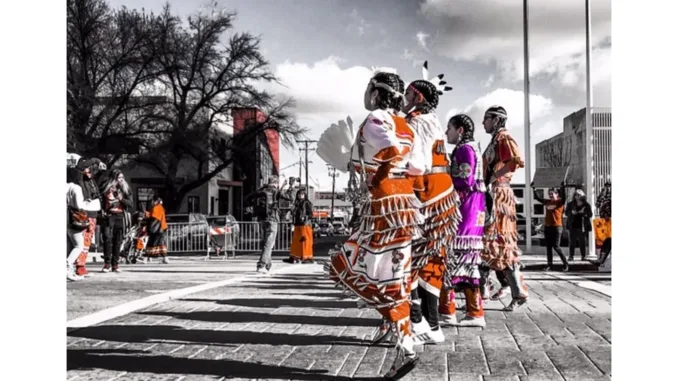
Today, we’re spotlighting four Indigenous-operated coffee shops to support this Indigenous Peoples’ Day and beyond.
BY EMILY JOY MENESES
BARISTA MAGAZINE ONLINE
Featured photo courtesy of Star Village Coffee
If you aren’t doing so already, today’s a great day to start supporting and uplifting Native-run businesses.
Compared to other racial groups in the United States, Native Americans face higher rates of poverty and unemployment. Many Indigenous peoples are pointing to supporting Native-run businesses as a form of reparations and a way to generate more resources and housing/food security within their communities. There are many Native businesses you can support (and so many other ways to uplift Indigenous communities); today we’re highlighting four Indigenous-owned organizations within the coffee world.
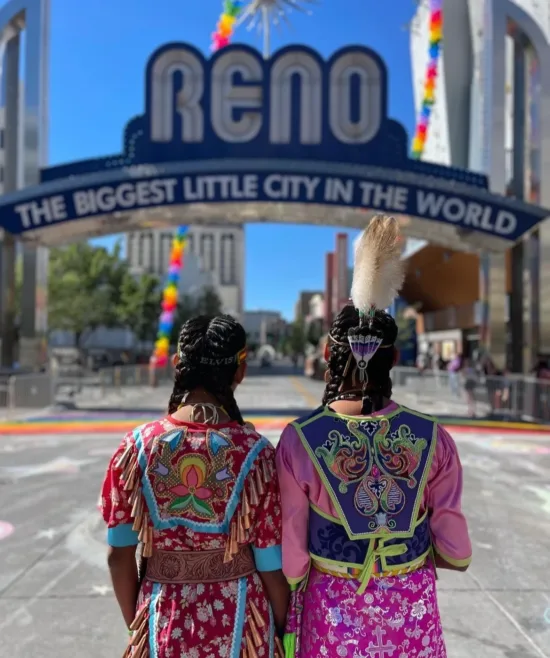
Star Village Coffee
Located in the Great Basin (Reno), Star Village Coffee shares that “Rezonomics”—the process of creating intergenerational mobility and prosperity within Indigenous communities—is central to their mission.
“Star Village recognizes the importance of being producers and creators of our tangible goods, so the acquired skills and achieved (resources) can carry over. Intergenerational mobility and prosperity sharing are inherently tribal. The higher the mobility, the greater the prosperity for everyone involved, and having access to a means of production is mission-critical,” the café shares. “Spreading wealth means including the people who’ve been systematically locked out from creating economic opportunities for themselves. Expanding economic opportunities for communities that suffer from chronic poverty and underinvestment is what ‘Rezonomics’ is all about. That’s why SVC embodies an ethos of Indigenous entrepreneurship: self-determined, holistic, and regenerating.”
Through their menu, the coffeehouse seeks to highlight what they call “grows wild” ingredients, or Indigenous Great Basin staples like sage, chokecherries, and pine nuts. Standout items on their menu include yaupon tea, brewed with America’s only native caffeinated plant, and the sage mint latte.
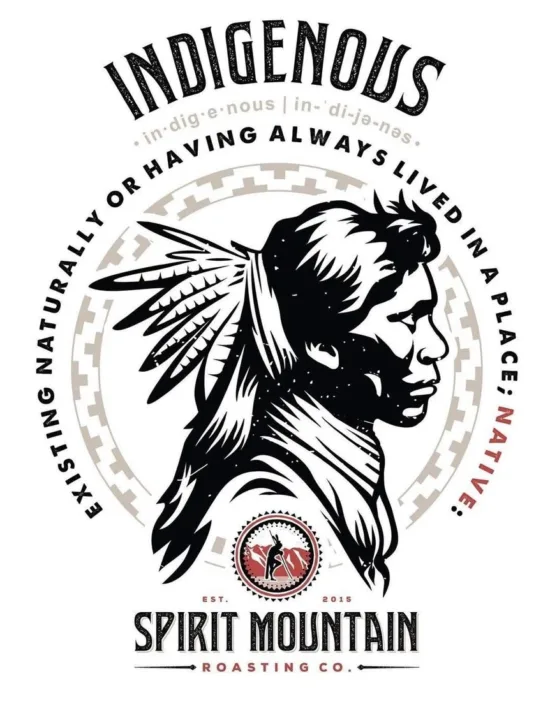
Spirit Mountain Roasting Co.
Spirit Mountain Roasting Co. is operated by members of the Quechan Nation and located on the Fort Yuma Quechan Reservation near Winterhaven, Calif. They prioritize direct and fair-trade relations with Indigenous coffee farmers from around the world. Through every aspect of their work, the roastery seeks to share their culture and identity as well as uplift other Indigenous communities. That’s why they partner with nonprofit organizations like Minnesota-based Kalpulli Yaocenoxtli/Indigenous Roots and California’s Native America Humane Society.
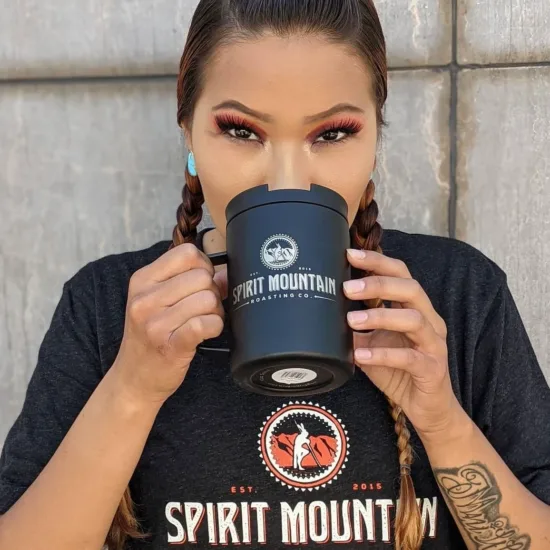
After graduating from Haskell Indian Nations University and the University of Kansas, Spirit Mountain’s founder Tudor Montague spent his early career working for tribes in the environmental field. After developing an interest in coffee, he began to learn the science of roasting and founded Spirit Mountain in 2015.
“We’re focused on providing freshly roasted specialty coffee and healthy food alternatives to our community members, while also providing economic opportunity by the way of job creation,” Tudor shares. “We are proudly ‘Indigenous from seed to cup’, which means we intentionally source our green coffee from Indigenous and women producers in Central and South America, which we then roast here on the reservation. Our aim is to build a truly local food economy here on our ancestral lands.”
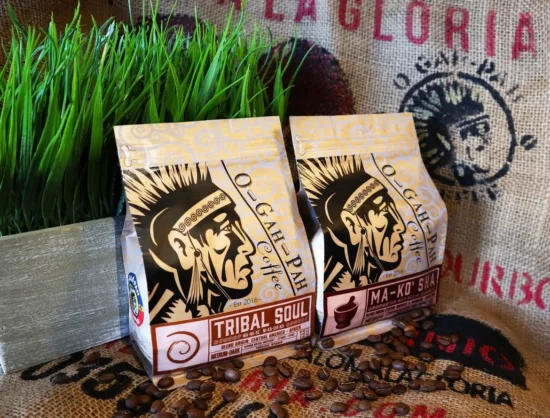
O-Gah-Pah Coffee
Operating in Joplin, Mo., since 2016, O-Gah-Pah was started by members of the Quapaw Nation. The name “O-Gah-Pah” translates to “Downstream People”—a reference to the journey that Quapaw members made along the Mississippi River into their traditional homeland in Arkansas.
On their website, O-Gah-Pah outlines some of the Quapaw people’s history. “For centuries, (they) lived in four large villages and many smaller communities along the Mississippi River and across modern-day Eastern Arkansas. The Quapaw people would annually plant and harvest crops and hunt buffalo according to the seasons. … They were particularly known for pottery, which was often painted; swirls being a distinctive pattern of the Quapaw people.”
“After removal, the Quapaw Nation came to reside in Northeastern Oklahoma, where we are still located today,” the roastery shares. “The Quapaw Nation continues to take great care and pride in crafting everything we put our name on—including O-Gah-Pah Coffee.”
Bison Coffeehouse
Bison Coffeehouse is Portland, Ore.’s only Native-owned coffee shop. Founder Loretta Guzman opened up shop in 2014 inside a 1926 building next door to her father’s motorcycle shop, raising funds for it over several years through the tribal art of beading—a craft she picked up as a young girl.

Through opening the coffeehouse, Loretta sought to create a Native community space where she could foster feelings of connection and pride. She named the shop “Bison” because of her spiritual connection to the animal, having seen it in a dream when battling cancer in the years prior to opening the café. To her tribe, the Shoshone-Bannock Tribe, the bison symbolizes resilience—an energy Loretta hopes to capture through the coffee shop’s environment and offerings.
ABOUT THE AUTHOR
Emily Joy Meneses (she/they) is a writer and musician based in Los Angeles. Her hobbies include foraging, cortados, vintage synths, and connecting with her Filipino roots through music, art, food, and beverage.
Subscribe and More!
As always, you can read Barista Magazine in paper or digital format. Read the October + November 2024 issue for free with our digital edition.
And for more than three years’ worth of issues, visit our digital edition archives here.


